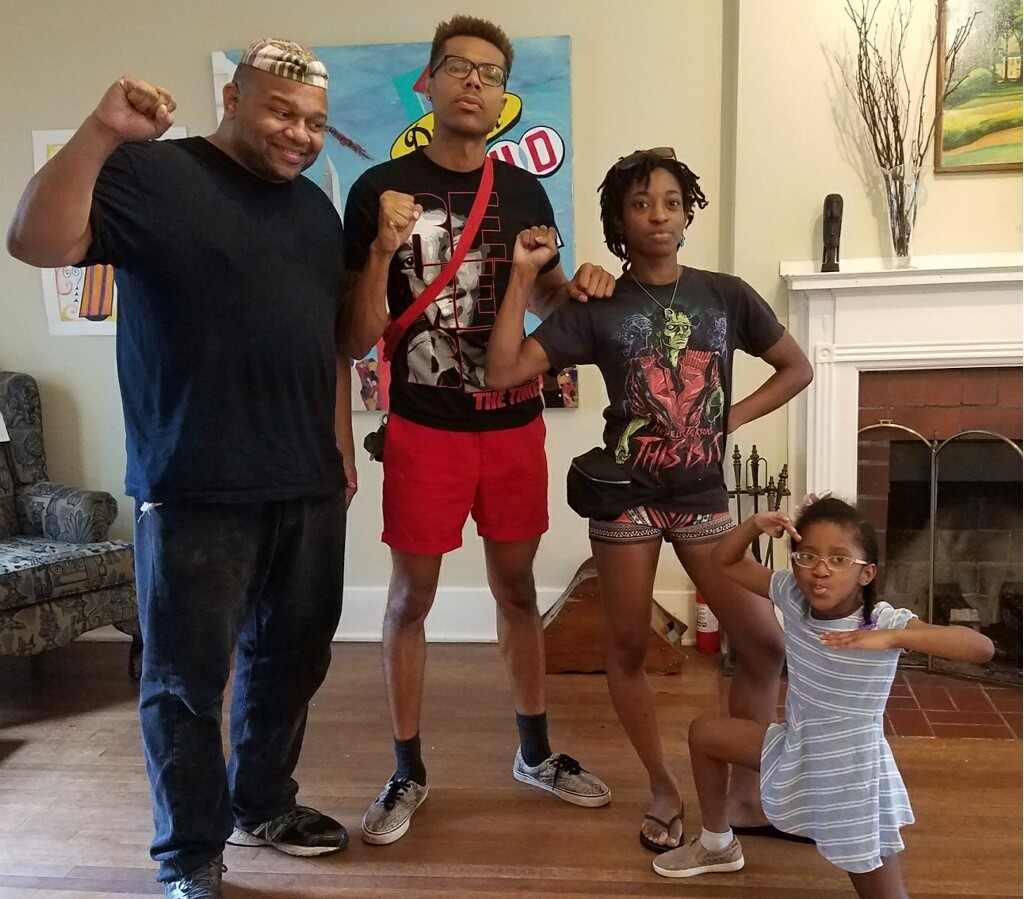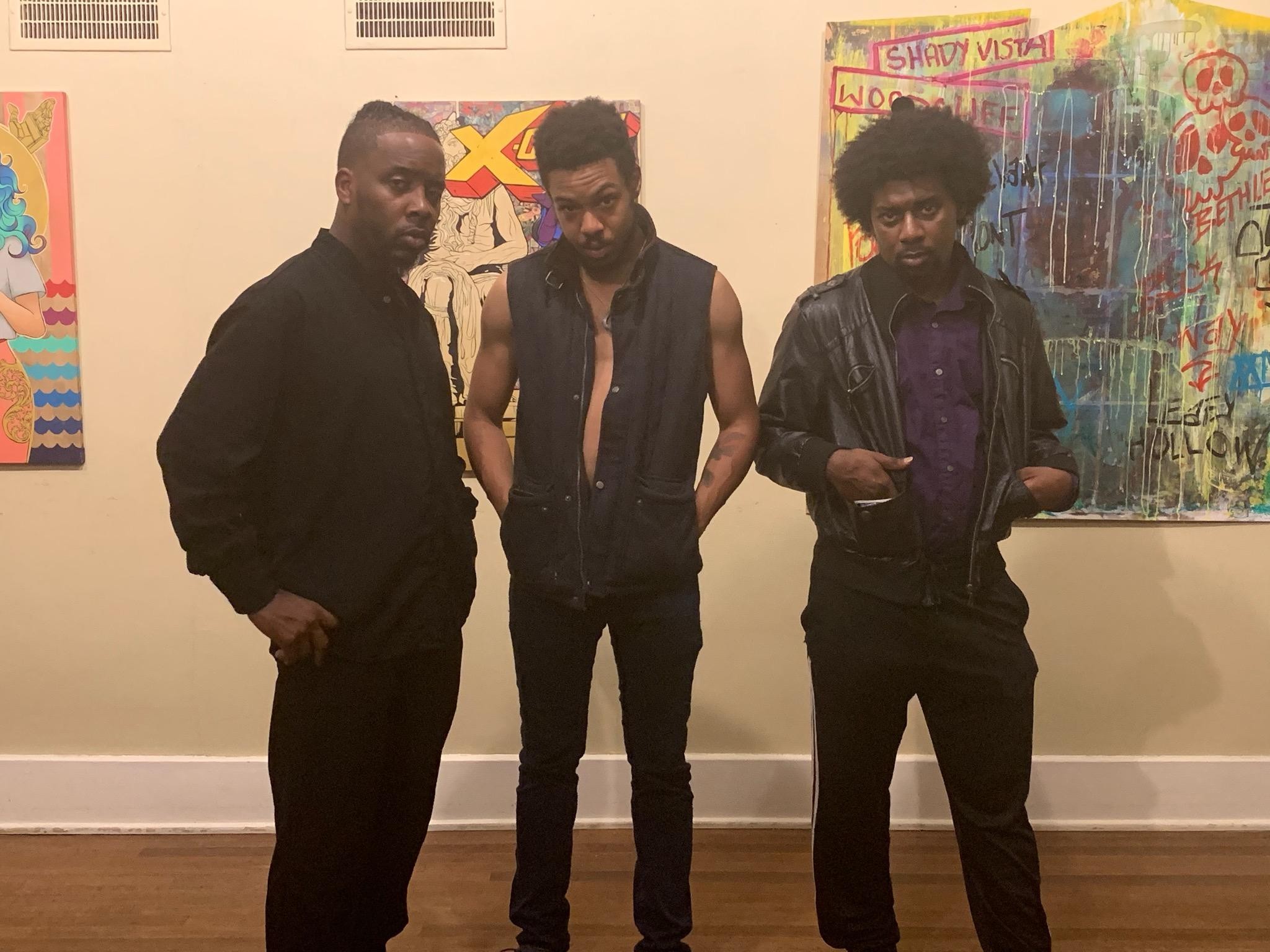
Ronald Herd II, Najee Strickland, Jeanelle ‘TBJ’ Jones, and her daughter, Sonnet Rose.
“Black August” will explore the fight against black oppression through music, art, poetry, and dance.
“It’s a show that includes theater with all-original scripts I wrote, dance choreographed by me, and poetry,” says producer Jeanelle ‘TBJ’ Jones.
“Black August,” which will be held at 7 p.m. on August 17th at JamRackBar & Lounge at 630 Madison Avenue, also will feature guest artists.
“There is an actual resistance movement called ‘Black August,’” Jones says. “It’s a combination of freedom fighters and socio-political fighters who are against racial oppression.”
During August, events around the country focus on “different things that have happened, whether freedom fighters’ deaths or their births or different resistances and attacks against the community.”
Events around the country will highlight the Nat Turner Rebellion, the Haitian Rebellion, and anti-apartheid fighter Steve Biko.
Jones took some of those historical events and people and “created productions around them.”
Director and creative founder of Afrotense, Jones produces live shows and films. Her “Black August” will include “scenes about Black Lives Matter and a response to that. And some scenes about Michael Jackson: ‘What happened to the black Michael Jackson?’”
“Black-on-black crime” is one of the topics. “Sometimes we’ll ostracize black celebrities. We’ll put them on a pedestal, but do one thing wrong, and we’re ready to tell them they no longer have a black card.”
Also participating in “Black August” are Najee Strickland, who will feature paintings from his “Black Fist” series, and J. Bu$y, who will perform his cover to the song ‘Be Careful’ by Cardi B. “But it’s not anything that song is about,” Jones says. “It’s about Black Lives Matter and fighting racial oppression.”
Diamond Long will dance to “Neo-Fight,” a poem written by Jones. “A lot of people think because we don’t hear about lynchings and things like that anymore, that they don’t happen. But they happen all the time.”
Ronald Herd II will be the emcee or “elder host” of “Black August,” Jones says. “Some of the things we did not touch on – because it would be a three-hour show – he is going to mention and talk about. Enlighten the audience while he hosts the show.”
Tickets to “Black August” are $15 per person or two for $25 and are available at Eventbrite. For information, visit facebook.com/afrotensepresents.

Ricky Willis, Freddy Ledlips Hodges, and Julius Nathaniel Hunt are in ‘Black August.’


